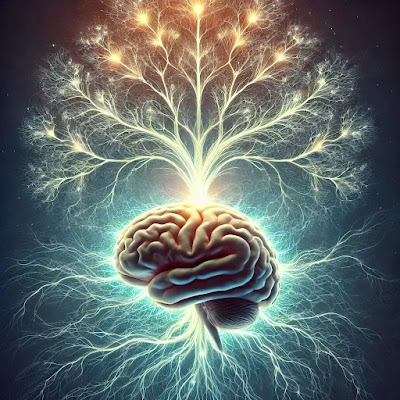The Science of Happiness 🍁
The Science of Happiness: Uncovering the Secrets to Joy and Well-Being
Happiness—an elusive state that many of us chase every day. But what if happiness isn’t just a fleeting emotion, but rather a blend of science, mindset, and habit? In this blog, we’ll dive deep into the research behind happiness, explore the brain chemistry that drives our moods, and share practical steps to cultivate a life filled with more joy and satisfaction.
The Biological Foundations of Happiness
At its core, happiness has a biological basis. Neuroscientists have discovered that our brains release a cocktail of chemicals—such as dopamine, serotonin, endorphins, and oxytocin—each contributing to our feelings of pleasure, reward, and social bonding.
- Dopamine: Often called the “reward molecule,” dopamine is released when we achieve goals or experience something new. It encourages us to seek out rewarding experiences and is a driving force behind motivation.
- Serotonin: This neurotransmitter plays a key role in regulating mood, appetite, and sleep. Higher levels of serotonin are linked with feelings of well-being and calm.
- Endorphins: These natural painkillers are released during exercise, laughter, or moments of deep connection, often leaving us with a euphoric “runner’s high.”
- Oxytocin: Known as the “love hormone,” oxytocin is released during social bonding, reinforcing feelings of trust and empathy.
A 2015 study published in *Neuroscience & Biobehavioral Reviews* found that the balance of these chemicals can influence how we perceive our world, suggesting that happiness isn’t just about circumstances but also about how our brains are wired to react to them.
The Psychological Perspective: Positive Psychology at Work
While biology lays the groundwork, psychology helps us understand how our thoughts and behaviors shape our happiness. Positive psychology—a field popularized by researchers like Martin Seligman—focuses on what makes life most worth living.
Gratitude and Mindfulness
Numerous studies have highlighted the power of gratitude. Regularly acknowledging what we’re thankful for rewires our brain to notice the positive aspects of our lives. As the Dalai Lama famously said,
> "Happiness is not something ready made. It comes from your own actions."
This sentiment underscores the active role we must play in our pursuit of joy.
Mindfulness, or the practice of being fully present in the moment, also plays a crucial role. By reducing the tendency to ruminate over past mistakes or worry about the future, mindfulness allows us to appreciate the now. Research published in *JAMA Internal Medicine* shows that mindfulness meditation can reduce symptoms of anxiety and depression, paving the way for a happier state of mind.
The Role of Social Connections
Humans are inherently social beings. Our relationships, whether with family, friends, or even our pets, can be a powerful source of happiness. Studies have consistently shown that strong social ties improve our mental and physical health.
Aristotle once observed,
> "Happiness depends upon ourselves."
While the quote reminds us of our personal responsibility, it also hints at the importance of community in achieving well-being.
Social interaction triggers the release of oxytocin, which enhances trust and empathy. In turn, these hormones help form a resilient support network that can buffer the effects of stress and adversity.
The Habits That Foster Long-Term Happiness
Building on the scientific insights from biology and psychology, here are practical habits that can help nurture a happier life:
1. Cultivate a Gratitude Practice
Consider keeping a daily journal where you list three things you’re thankful for. This simple act can shift your focus away from what’s lacking and toward what is abundant in your life.
2. Engage in Regular Physical Activity
Exercise isn’t just about physical health—it’s a mood booster. Activities like walking, cycling, or even dancing can stimulate the release of endorphins, leaving you with a natural sense of elation.
3. Prioritize Social Connection
Make time to connect with loved ones. Whether it’s a weekly dinner with friends or a video call with family, these interactions can provide emotional support and deepen your sense of belonging.
4. Practice Mindfulness and Meditation
Even a few minutes a day can make a difference. Mindfulness practices help center your thoughts and reduce the constant chatter of a busy mind, fostering a state of calm and clarity.
5. Set Meaningful Goals
Goals give us direction and a sense of purpose. Setting and achieving goals, no matter how small, triggers the release of dopamine and helps sustain motivation and self-esteem.
6. Embrace Lifelong Learning
Curiosity not only keeps your mind active but also opens you up to new experiences. Whether it’s reading a book, taking a course, or exploring a new hobby, learning enriches your life and boosts happiness.
Debunking Common Myths About Happiness
While the science of happiness is robust, several myths persist. Let’s take a look at a few and debunk them with scientific evidence:
- Myth 1: Happiness is a Constant State.
In reality, happiness is dynamic. It fluctuates based on circumstances, activities, and even hormonal changes throughout the day.
- Myth 2: Material Wealth Guarantees Happiness.
Although financial stability is important, studies show that beyond a certain threshold, increased income does not correlate with increased happiness. The quality of relationships and personal fulfillment plays a much larger role.
- Myth 3: Happiness Means Never Feeling Sad.
Experiencing sadness is a natural and essential part of the human experience. It allows us to appreciate joy and often drives personal growth.
The Future of Happiness Research
The pursuit of happiness is not just a personal journey but a societal one as well. Researchers are now exploring how public policies, urban planning, and workplace practices can influence collective well-being. Some intriguing areas of study include:
- **The Impact of Nature on Mood:**
Emerging research suggests that regular exposure to nature can lower stress and improve mental health. Green spaces and natural environments provide a calming backdrop that helps balance the brain’s chemistry.
- **Digital Well-Being:**
As technology increasingly occupies our lives, understanding its impact on mental health is critical. Researchers are investigating how to harness digital platforms to promote positive social connections without succumbing to the pitfalls of overuse.
- **Neuroplasticity and Happiness:**
The brain’s ability to rewire itself—a phenomenon known as neuroplasticity—offers hope that intentional practices like meditation and cognitive-behavioral therapy can create lasting changes in our mood and outlook.
Final Thoughts: Crafting Your Own Happiness
At its essence, happiness is both an art and a science. While biology and psychology provide us with the tools and insights to understand it, the journey to sustained happiness is deeply personal. As you integrate these scientific insights into your daily life, remember that small, consistent actions can lead to profound changes.
In the words of the renowned psychologist Martin Seligman,
> "Happiness is everything that is right with the world."
This quote serves as a reminder that our pursuit of happiness is intertwined with the broader tapestry of life—our relationships, our environment, and the very way we choose to live.
By embracing the science behind happiness and implementing actionable strategies, you’re not just chasing fleeting moments of joy; you’re building a resilient foundation for lasting well-being. Enjoy the journey, celebrate the little victories, and remember that the science of happiness is ever-evolving—just like you.
*What are your thoughts on the science of happiness? Share your personal strategies or any inspiring quotes that have shaped your outlook in the comments below!*








Comments
Post a Comment